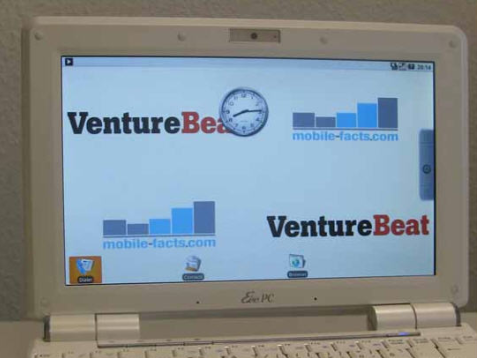Android on netbooks is BIG money for Google

The guys at VentureBeat succeeded (after only a couple hours) in getting Google's Android operating system to work on an Asus EEEPC 1000H. During their experiment, they stumbled across some interesting tidbits in the code that pretty much spills the beans on Google's plan for Android on "mobile internet devices" or MID's. MID is what Intel calls devices like the netbook which was used in this experiment. Read the entire article about their experiment here.

If Google gets this right, the possibilities are tremendous. Currently Google plans to use 30% of the revenue generated from sales of Android applications to pay carriers and billing settlement fees. Think about it though -- that 30% only makes sense if we're talking about mobile devices on a wireless network. I'd suspect that the 30% rake will still exist when Android makes its way into netbooks -- and in that case, Google would be the sole recipient of the money. Imagine if Google was able to make 30% on all software sold for their operating system -- that should make investors happy. Perhaps this is precisely what Ballmer failed to understand when he said:
I don’t really understand their (money making) strategy. Maybe somebody else does. If I went to my shareholder meeting, my analyst meeting, and said, ‘hey, we’ve just launched a new product that has no revenue model!’...I’m not sure that my investors would take that very well. But that’s kind of what Google’s telling their investors about Android.
Depending on how far down the road Google's announcement of Android for netbooks is, perhaps the Android Development Challenge II will actually be aimed towards the development of applications designed for larger clients like these?
I'm definitely going to be keeping my eye on this one!